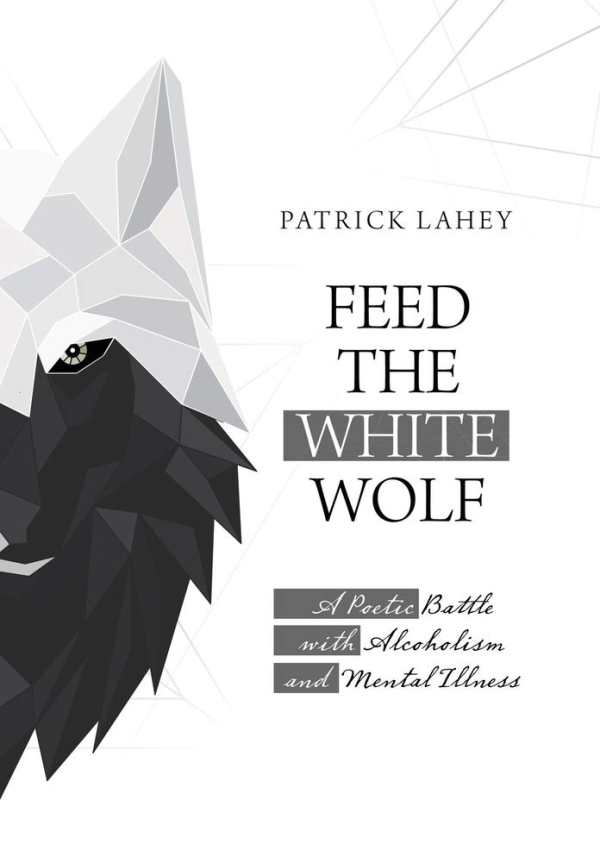Feed the White Wolf
A Poetic Battle with Alcoholism and Mental Illness
Often fiery and always authentic, the poems collected in Feed the White Wolf are fearless in addressing addiction and mental illness.
Patrick Lahey’s poetic memoir Feed the White Wolf is about surviving addiction.
Following a loose chronology, these poems cover a lifetime of struggles with mental health and substance use disorder. They encompass Lahey’s early childhood; a series of disastrous relationships; his experiences with parenthood; and his arrival at a place of self-love and acceptance. Throughout the text, themes and characters recur: children, partners, and friends arrive and return, some unnamed but signified by single initials. Dramatic narrative choices isolate the collection’s most sensational scenes, including of fights, sexual encounters, and bad trips. Still, the book’s memoir elements are less pronounced than the poems’ intense feelings, and their considerations of how such feelings impact personal relationships.
Using metaphors, symbology, and unusual allusions, poems like “ASDFJ” name those different feelings before addressing their audiences with sympathy: “Anger’s my favorite. What would be yours? / They are always there, behind your closed doors.” In “Water,” a comparison of a first ever visit to a pool to the nurturing amniotic fluid of pregnancy is made: “Sometimes the water got wavy and swelled, / But still I found solace in the pain that it held.” Other poems invoke courage and warrior spirits, pronouncing them necessary to facing life on its own terms, to exiting addiction, and to doing the grueling, sometimes humiliating work of rebuilding from ground zero.
The entries’ rhymes and stanza breaks emphasize their wordplay and imagery. As an unfiltered account of a “battle” with addiction, the book is powerful and punchy. However, many of its entries run together: each piece is high energy, and the overall abundance of superlatives and exaggerations make the collection feel flat by its end. It sprints toward its imagined finish line of wellness without nuance, and the natural dips and undulations of life are omitted or jacked up to match the speed of surrounding poems. As a result, even when individual poems seem fluid and intentional, the collection as a cohesive composition becomes a faltering one, though it is ferocious and heartfelt throughout.
Often fiery and always authentic, the poems of Feed the White Wolf are fearless, resulting in a blunt collection that’s bent on exposing the underbelly of addiction, the emotional costs of living with mental illness, and the profound relief and joy that recovery delivers.
Reviewed by
Claire Foster
Disclosure: This article is not an endorsement, but a review. The publisher of this book provided free copies of the book and paid a small fee to have their book reviewed by a professional reviewer. Foreword Reviews and Clarion Reviews make no guarantee that the publisher will receive a positive review. Foreword Magazine, Inc. is disclosing this in accordance with the Federal Trade Commission’s 16 CFR, Part 255.


